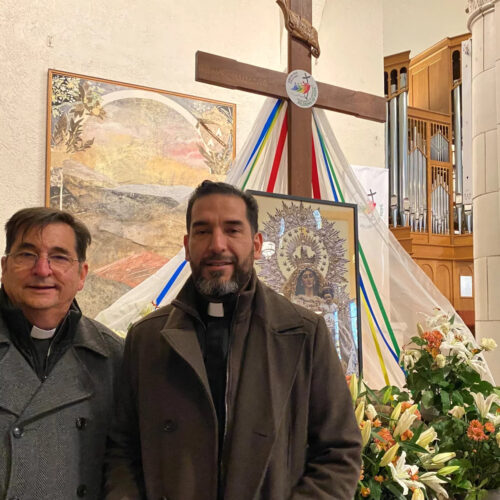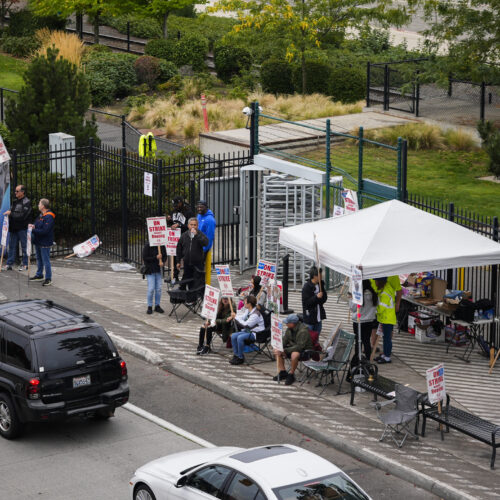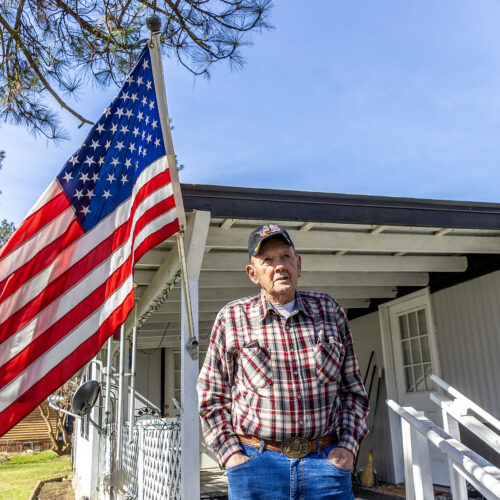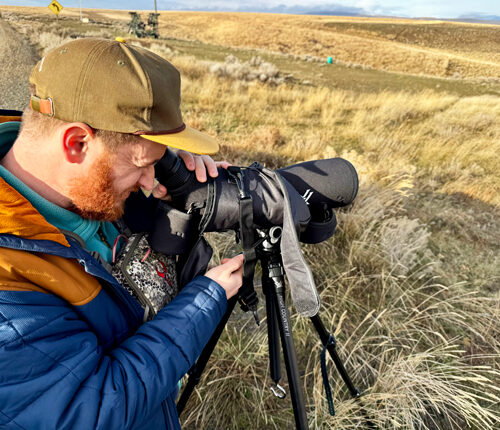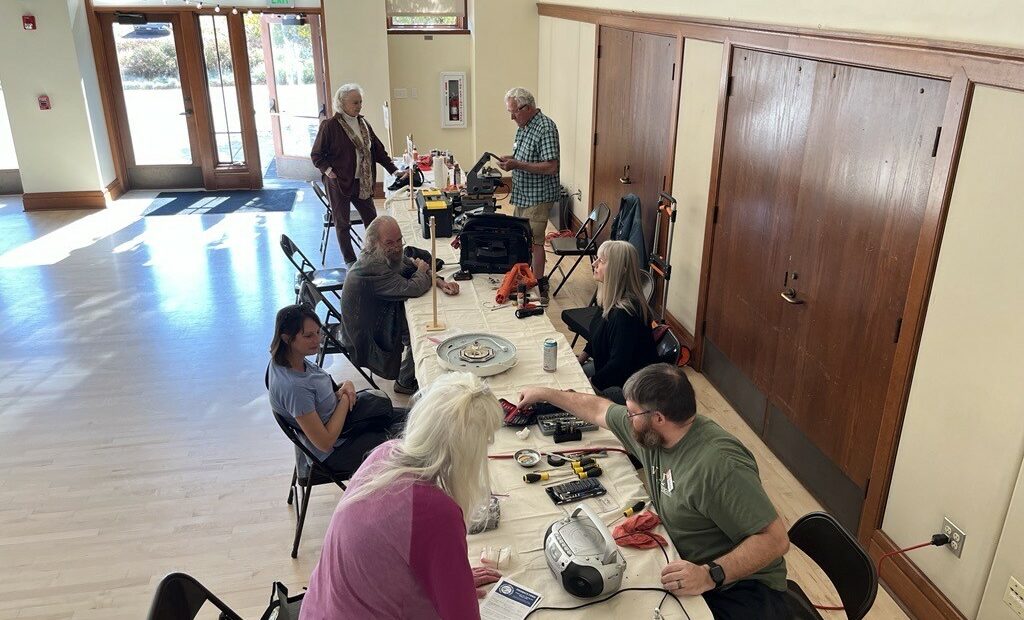
Repair Cafes offer household items a second life
Listen
(Runtime 3:47)
Read
On a Sunday afternoon at the 1912 Center in Moscow, Idaho, it felt a little like an episode of “Antiques Roadshow.” But instead of getting appraisals on family heirlooms, people brought broken household items to be repaired.
Some of the more unique pieces included the base of an electric food dehydrator, a leaf blower, a Sasquatch magnet and a mini grandfather clock — think of items you might see at a garage sale. This event is what’s known as a Repair Cafe — a chance for people to bring in items to be repaired for free by volunteers.
Repair Cafes started in Europe about 15 years ago. The first one was held in Amsterdam in October 2009. They’ve popped up in cities across the U.S. since then.
Jackie Carter is the coordinator for the local Repair Cafe, which is sponsored by the Latah County Library District. She said the idea of Repair Cafes is to keep as much out of the landfill as possible as an effort to combat “planned obsolescence.” That’s when manufacturers design something to break down quickly, with the intention that people will continue to buy new products.
The cafe featured different stations, including places for book mending, knife and scissor sharpening and small household appliance repair — there was even a glue station.
“I think everyone has that one little thing at home that’s broken that needs special glue, and nobody wants to pay $9 for a bottle of glue that you’re going to use once, so we’re set up to do that,” Carter said.
Jacob Turner was working at the small appliance repair station.
Turner said they’ve had many items come through the station, including heaters, vacuums and quite a few clocks.
“It’s very smorgasbord over here,” he said.
Nearby, Jay Pengilly was working at the knife and scissor sharpening station.
“I’m retired. I used to work at the university, and I ran a shop up there. And so as a consequence, I learned how to sharpen chisels and things like that,” he said.
Rochelle Smith is the chair of the board for the Latah County Library District, and was volunteering at the event. She explained why she liked Repair Cafes in terms longtime PBS fans should understand.
“When I was a kid, I loved ‘Sesame Street,’ (and) still love ‘Sesame Street.’ And Luis on ‘Sesame Street’ used to have a Fix-It Shop, and people would bring things there to get fixed,” she said. “I was always was sort of like, ‘Wouldn’t it be awesome to work in a Fix-It Shop.’”
Smith added that repairing items — instead of replacing them — can have a positive environmental impact. She also says when the things around you have meaning and are worthy of repair, it can make your life richer.



